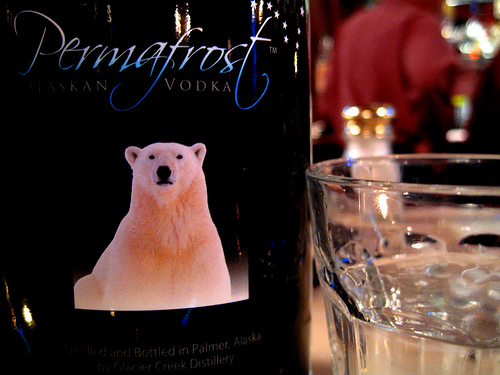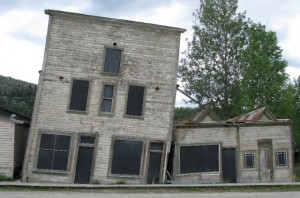Blog Action Day: the Methane Pulse
Blog Action Day focuses this year on climate change, which, like everything else on this planet, is also a microbial matter. Howzat? Methane (CH4) is a greenhouse gas which has heat retention capability 23 times of that of CO2. Soil methanogens are the chief global producers of methane. There are an estimated 7.5x 109 tons of methane trapped in a frozen peat bog in West Siberia which constitute 25% of the estimated methane trapped in soil and ice-age permafrost worldwide. Due to global warming, this permafrost is melting, releasing methane, which in turn contributes to global warming in a vicious cycle. The Nature paper, and an article in TerraNature.
Not only there, but trapped methane in the melting Arctic Ocean is also being released. The ocean floor permafrost is melting, clouds of gas bubbles are welling up in “methane chimneys”
These “methane chimneys” sometimes contained concentrations of the gas 100 times higher than background levels and were so large that clouds of gas bubbles were detected “rising up through the water column,” Orjan Gustafsson of the Department of Applied Environmental Science at Stockholm University and the co-leader of the expedition, said in an interview. There was no doubt, he said, that the methane was coming from sub-sea permafrost, indicating that the sea bottom might be melting and freeing up this potent greenhouse gas.
Susan Q. Stranahan, environment360
The concern is that methane release might lead to a tipping point in global climate change: flipping a switch rather than turning a dial. At some point, global warming might turn into a runaway scenario when a critical concentration of atmospheric methane is reached. Martin Kennedy and colleagues at the University of California, Riverside claim that this is how Snowball Earth has ended 635 million years ago: a rapid warming period following a runaway positive feedback prompted by a methane pulse.
How big a problem is this? Big. We have only recently begun to understand the magnitude of the role of methanogens in soil chemistry. It is very large. Even in arctic climes, cold adapted methanogens are active at below 0C temperature, down to -20C. However, a study conducted by Dirk Wagner and colleagues shows that a 3 degree rise in soil temperature from -6C to -3C would increase methane production dramatically. This means that not only trapped methane will be released due to soil thawing, but also that methane production itself will increase due to more favorable growth conditions for soil methanogens. So permafrost thawing hits the atmosphere with a double-whammy of methane release, supporting the concern about a runaway positive-feedback cycle that will cause sudden climate change.
Walter, K., Zimov, S., Chanton, J., Verbyla, D., & Chapin, F. (2006). Methane bubbling from Siberian thaw lakes as a positive feedback to climate warming Nature, 443 (7107), 71-75 DOI: 10.1038/nature05040
Kennedy, M., Mrofka, D., & von der Borch, C. (2008). Snowball Earth termination by destabilization of equatorial permafrost methane clathrate Nature, 453 (7195), 642-645 DOI: 10.1038/nature06961
WAGNER, D., GATTINGER, A., EMBACHER, A., PFEIFFER, E., SCHLOTER, M., & LIPSKI, A. (2007). Methanogenic activity and biomass in Holocene permafrost deposits of the Lena Delta, Siberian Arctic and its implication for the global methane budget Global Change Biology, 13 (5), 1089-1099 DOI: 10.1111/j.1365-2486.2007.01331.x























Here’s my post for Blog Action Day:
http://selfdestructivebastards.blogspot.com/2009/10/wake-up-humanity.html
Everyone else go make one too!
Great post. I happen to have just written a post on how slow CO2 will disappear http://bit.ly/OqZHp – together we just covered the two most importang GHGes. Btw your blog looks interesting, will subscribe.